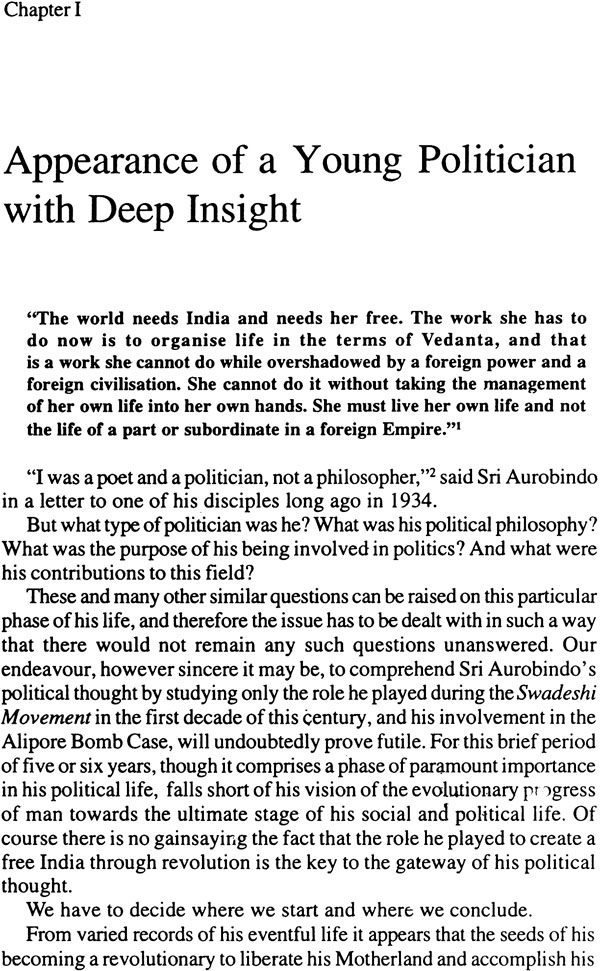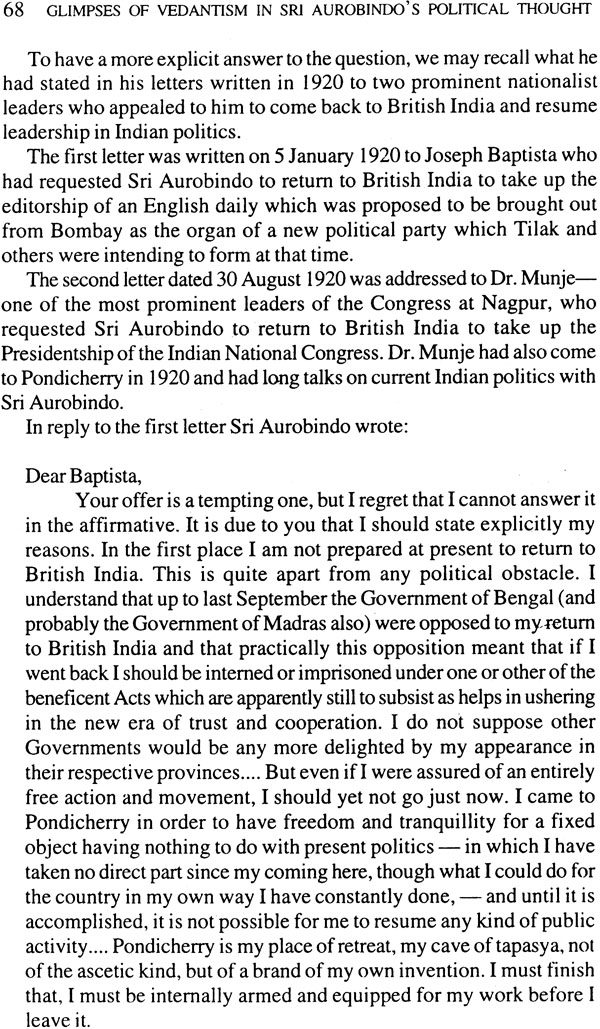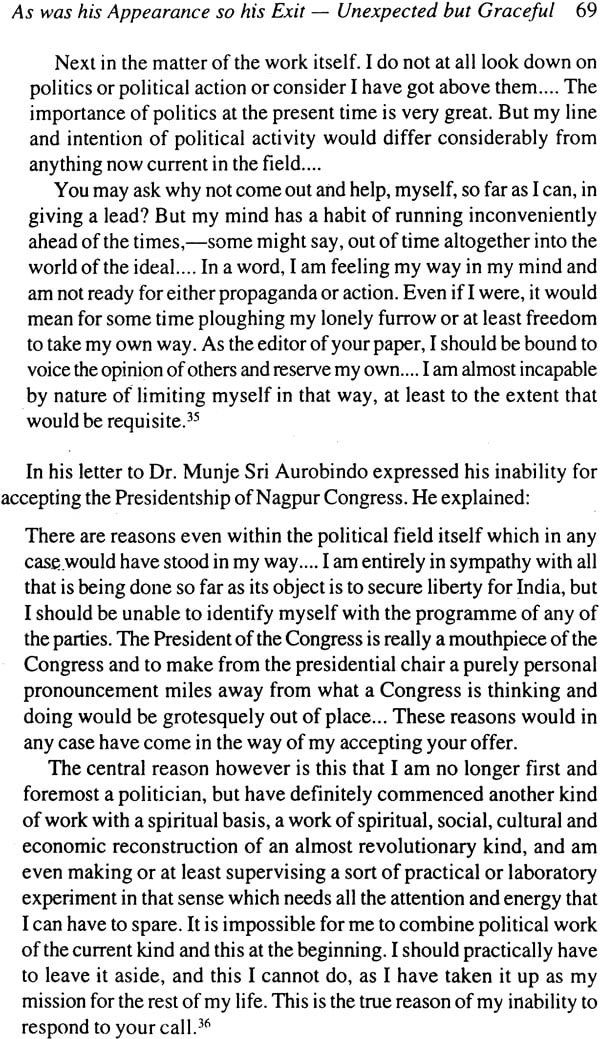
Glimpses of Vedantism in Sri Aurobindo's Political Thought
Book Specification
| Item Code: | IDJ389 |
| Author: | Samar Basu |
| Publisher: | Sri Mira Trust, Pondicherry |
| Language: | English |
| Edition: | 1988 |
| ISBN: | 8186413073 |
| Pages: | 73 |
| Cover: | Paperback |
| wight of the book: 140 gms | |
| Other Details | 8.5 inch X 5.5 inch |
| Weight | 140 gm |
Book Description
Preface
Long before the human life was perceived to have two different aspects to it, the mundane and the spiritual, the philosophy of Vedanta which was an integral vision of life or which saw life as one, had taken roots in the Indian Consciousness. Indeed, the term philosophy, as we understand it today, can be applied to Vedanta only with an apology. For the Vedanta was neither the outcome of some cerebral exercise nor an articulation of some emotional or devotional ecstasy, but a faith, a vision and an all-embracing justification of our existence.
"The early Vedic religion did not deny, but laid a full emphasis on life. The Upanishads did not deny life, but held that the world is a manifestation of the Eternal, of Brahman, all here is Bhahman, all is in the Spirit and the Spirit is in all, the self-existent Spirit has become all these things and creatures; life too is Brahman, the life-force is the very basis of our existence of man is not the highest or the whole; his outward mind and life are not all his being; to be fulfilled and perfect he has to grow out of his physical and mental ignorance into spiritual self-knowdledge. --- Sri Aurobindo
The Foundations of Indian Culture
From the Vedantic angle, no aspect of life, no area of human activity is divorced from the whole of life and the whole of life cannot be perceived of understood without our perception and understanding of its source and its goal; its source being the Divine Consciousness involved in creation and its goal being the full manifestation of that Consciousness, through an evolution of what is involved.
All contradictions and contrasts, all strifes and struggles are only symptoms of that process and the struggle for India's freedom was no different. A struggle against bondage to an external power was the corollary, at the material plane, to our inner being's perpetual struggle against its bondage to ignorance.
"Sri Aurobindo never brought any rancor into his politics. He never had any hatred for England or the English people; he based his claim for freedom for India on the inherent right to freedom, not on any charge of misgovernment or oppression; if he attacked persons even violently, it was for their views or political action, not from any other motive."-Sri Aurobindo (On Himself)
In this easy-reading and systematically presented glimpses of an aspect of Sri Aurobindo's life, Shri Samar Basu, who has all along been a keen student of Sri Aurobindo's social and political thoughts, has tried to trace the subtle thread of Vedantism underlying the actions and utterances of the Master. Sri Aurobindo, of course, is commanding the attention of the world today more for his vision of human destiny than for anything else. But events on the surface of his life, despite his viewing them as insignificant, continue to arouse great interest for scholars and historians. Shri Samar Basu's insight into them will undoubtedly be helpful to many because, apart from the facts arrayed by him, it is a highly readable narrative.-Manoj Das
| Chapter | Pages | |
| I | Appearance of a Young Politician with Deep Insight | 1 |
| II | The Vision of the Light and Force of the Mother | 7 |
| III | The Partition of Bengal and Thereafter | 13 |
| IV | Political Philosophy of Revolution to create Free India | 26 |
| V | As was his Appearance so his Exit -Unexpected but Graceful | 48 |
| Bibliography | 71 |









